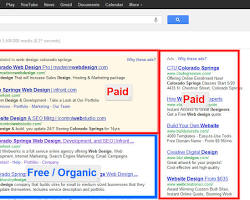
Pay-Per-Click (PPC) marketing is a highly effective digital advertising strategy that allows businesses to reach their target audience through paid ads on search engine results pages (SERPs) and other online platforms.By paying only when someone clicks on your ad, PPC offers a targeted and measurable way to drive traffic to your website.
Key Components of PPC Marketing
- Keyword Research: Identifying relevant keywords that your target audience is likely to search for is crucial in PPC campaigns.
- Ad Creation: Crafting compelling ad copy that includes strong calls to action and relevant keywords is essential to attract clicks.
- Landing Page Optimization: Ensure that your landing pages are optimized for conversions and align with your ad messaging.
- Bidding Strategies: Selecting the appropriate bidding strategy, such as cost per click (CPC), cost per acquisition (CPA), or cost per mille (CPM), is essential for maximizing your ROI.
- Targeting Options: PPC platforms offer a wide range of targeting options, including demographics, interests, behaviors, and custom audiences, allowing you to reach your ideal customers.
- Ad Extensions: Enhance your ad visibility and click-through rates by using ad extensions like sitelinks, callouts, and snippets.
Benefits of PPC Marketing
- Targeted Reach: In addition, PPC allows you to reach specific demographics, interests, and behaviors, thereby ensuring that your ads are seen by the right people.
- Measurable Results: Furthermore, PPC provides detailed analytics, thereby allowing you to track the performance of your campaigns, measure ROI, and make data-driven adjustments accordingly
- Fast Results: PPC campaigns can generate immediate results, making it an excellent option for businesses seeking quick traffic and conversions.
- Scalability: PPC is highly scalable, allowing you to adjust your budget and targeting options as needed to meet your business goals.
- Flexibility: Moreover, PPC offers flexibility in terms of ad formats, bidding strategies, and targeting options, thus making it highly adaptable to various marketing objectives.
Best Practices for PPC Marketing
- Keyword Research: Conduct thorough keyword research to identify the most relevant terms for your target audience.
- Ad Quality: Create high-quality ads that are relevant, engaging, and encourage clicks.
- Landing Page Optimization: Optimize your landing pages for conversions and ensure they align with your ad messaging.
- A/B Testing: Experiment with different ad variations to identify the most effective elements.
- Tracking and Analysis: Regularly monitor your campaign performance and use analytics to make data-driven decisions.
- Continuous Optimization: Continuously optimize your campaigns based on performance data to improve results.
By effectively utilizing marketing, businesses can not only drive targeted traffic but also generate leads and ultimately increase conversions. Furthermore, with careful planning, consistent optimization, and continuous monitoring, you can significantly maximize the return on your advertising investment.

